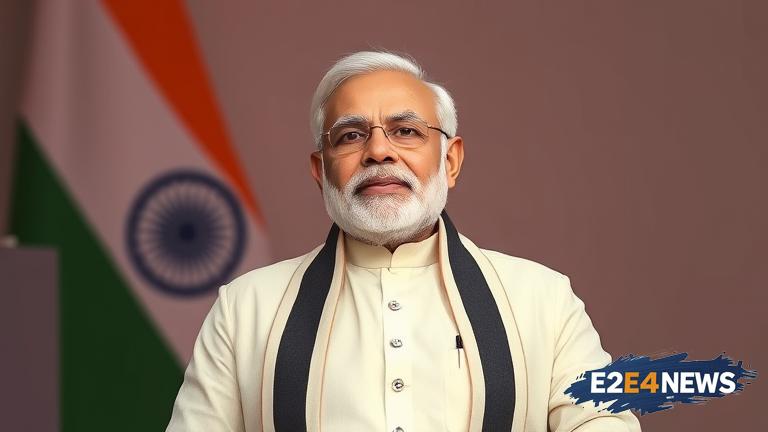Narendra Modi, the Prime Minister of India, has been a dominant figure in the country’s politics for over a decade. However, his current politics have raised questions about the limits of his leadership. Despite his popularity, Modi’s government has been criticized for its handling of various issues, including the economy, social welfare, and foreign policy. The opposition has been vocal about the government’s failures, and the media has been scrutinizing its decisions. Modi’s leadership style, which was once seen as a strength, is now being viewed as a weakness. His tendency to centralize power and make decisions without consulting others has led to criticism. The government’s response to the COVID-19 pandemic has been particularly criticized, with many arguing that it was slow to respond and inadequate in its measures. The economy has also been a major concern, with rising unemployment and a slowdown in growth. The government’s policies, such as the introduction of the Goods and Services Tax (GST), have been criticized for their impact on small businesses and the informal sector. Furthermore, the government’s handling of social issues, such as the citizenship amendment act and the National Register of Citizens (NRC), has been controversial. The opposition has accused the government of promoting a divisive agenda and undermining the country’s secular fabric. Modi’s leadership has also been criticized for its lack of transparency and accountability. The government has been accused of suppressing dissent and criticism, and the media has been facing increasing pressure. Despite these challenges, Modi remains a popular figure, and his party, the Bharatiya Janata Party (BJP), continues to dominate Indian politics. However, the current politics of Narendra Modi expose the limits of his leadership, and it remains to be seen how he will respond to these challenges. The future of Indian politics will depend on how Modi and his government address these issues and whether they can regain the trust of the people. The international community is also watching closely, as India’s role in global affairs continues to grow. The country’s relationships with its neighbors, particularly Pakistan and China, will be crucial in the coming years. The government’s response to global challenges, such as climate change and terrorism, will also be important. Overall, the current politics of Narendra Modi are complex and multifaceted, and it will be interesting to see how they evolve in the coming years.
